
They Might Be Giants, often abbreviated as TMBG, is an American alternative rock band formed in 1982 by John Flansburgh and John Linnell. During TMBG's early years, Flansburgh and Linnell frequently performed as a musical duo, often accompanied by a drum machine. In the early 1990s, TMBG expanded to include a backing band. The duo's current backing band consists of Marty Beller, Dan Miller and Danny Weinkauf. They have been credited as vital in the creation and growth of the prolific DIY music scene in Brooklyn in the mid-1980s.

The Gambler is the sixth studio album by American singer Kenny Rogers, released by United Artists in November 1978. One of his most popular, it has established Rogers' status as one of the most successful artists of the 1970s and 1980s. The album reached many markets around the world, such as the Far East and Jamaica, with Rogers later commenting "When I go to Korea or Hong Kong people say 'Ah, the gambler!'". The album has sold over 5 million copies.

"An American Trilogy" is a 1972 song medley arranged by country composer Mickey Newbury and popularized by Elvis Presley, who included it as a showstopper in his concert routines. The medley uses three 19th-century songs:
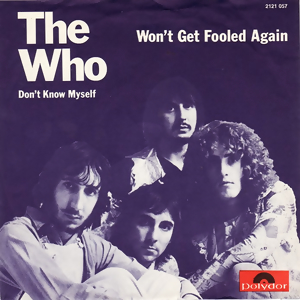
"Won't Get Fooled Again" is a song by the English rock band the Who, written by guitarist and primary songwriter Pete Townshend. It was released as a single in June 1971, reaching the top 10 in the UK, while the full eight-and-a-half-minute version appears as the final track on the band's 1971 album Who's Next, released that August. In the US, the single entered Billboard on 17 July, reaching No. 15.
Milton Sims "Mickey" Newbury Jr. was an American singer-songwriter and a member of the Nashville Songwriters Hall of Fame.
"Just Dropped In (To See What Condition My Condition Was In)" is a psychedelic rock song written by Mickey Newbury and best known from a version by the First Edition, recorded in 1967 and released to popular success in 1968. Said to reflect the LSD experience, the song was intended to be a warning about the dangers of using the drug.
The Cassettes are a Washington, D.C., based "Mystic Country"/Steampunk band formed in 1999.
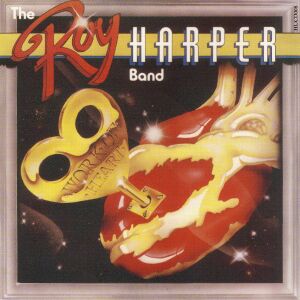
Work of Heart is the 11th studio album by English folk / rock singer-songwriter and guitarist Roy Harper and was first released in 1982.
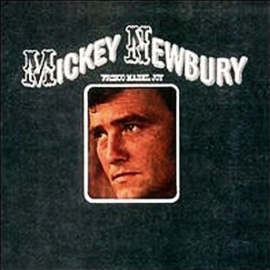
'Frisco Mabel Joy is a 1971 studio album by singer-songwriter Mickey Newbury. This was the second of three albums Newbury recorded at Cinderella Sound. The album includes the original version of "An American Trilogy", which Elvis Presley later performed in his Las Vegas shows with much success. "How Many Times " is a dramatically re-imagined version of a song first released on Harlequin Melodies, Newbury's RCA debut. Other standout tracks include "The Future's Not What It Used to Be", "Remember the Good", "Frisco Depot", and "How I Love Them Old Songs". The track "San Francisco Mabel Joy" was not initially part of the album, though it is included on some versions. ’Frisco Mabel Joy was collected for CD issue on the eight-disc Mickey Newbury Collection from Mountain Retreat, Newbury's own label in the mid-1990s, along with nine other Newbury albums from 1969 to 1981. In 2011, it was reissued again, both separately and as part of the four-disc Mickey Newbury box set An American Trilogy, alongside two other albums recorded at Cinderella Sound, Looks Like Rain and Heaven Help the Child. This release marks the first time that 'Frisco Mabel Joy has been released on CD in remastered form, after the original master tapes were rediscovered in 2010.
Cortelia Clark was an American blues singer and guitarist, known for his performances on the streets of Nashville. He won a Grammy Award for Best Folk Recording in 1967, for the album Blues in the Street, his only recording.

Looks Like Rain is a 1969 concept album by singer-songwriter Mickey Newbury. After recording his debut album with RCA, Newbury was dissatisfied with the resulting album and left RCA to pursue a style closer to his tastes. Recorded at Cinderella Sound, as his next two albums would be, the result is widely considered his first real recording and represents a peak in the singer songwriter movement, especially for Nashville. The sound and style of the record would be highly influential during the Outlaw Movement during country music in the 1970s especially on albums by David Allan Coe and Waylon Jennings. Linking the tracks with delicate arrangements and liberal amount of atmosphere, the record contains some of Newbury's most celebrated compositions including "She Even Woke Me Up to Say Goodbye", "33rd of August", "I Don't Think Much About Her No More", and "San Francisco Mabel Joy". AllMusic's review of the album concludes, "Looks Like Rain is so fine, so mysterious in its pace, dimension, quark strangeness and charm, it defies any attempt at strict categorization or criticism; a rare work of genius."
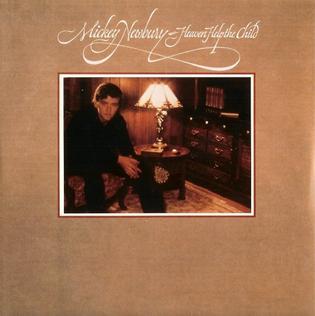
Heaven Help the Child is a 1973 studio album by country singer-songwriter Mickey Newbury. The album was Newbury's third consecutive release recorded at Cinderella Studios. Noted for its dramatic remakes of four previous Newbury songs: "Sweet Memories" and "Good Morning Dear" from Harlequin Melodies, "Sunshine" from Sings His Own, and "San Francisco Mabel Joy" from Looks Like Rain, the album is considered equal among Newbury's acclaimed Looks Like Rain and Frisco Mabel Joy. Apart from its definitive versions of three of Newbury's early songwriting hits, the album is also acclaimed for its title track, with its multi-generational narrative, the haunting "Cortelia Clark", and the bluegrass classic "Why You Been Gone So Long". In his AllMusic review of the LP, Thom Jurek declares, "Newbury, for the third time in as many recording sessions, came up with a record that defies categorization. And for the third time in a row, he had done the impossible, created a masterpiece, a work of perfection."
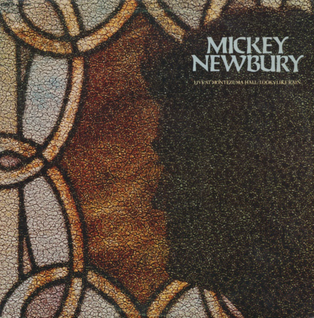
Live at Montezuma Hall is the first live album from singer-songwriter Mickey Newbury, recorded at Montezuma Hall at San Diego State University in 1973. Featuring Newbury performing solo with an acoustic guitar, the album is notable for touching renditions of many of Newbury's excellent songs and for his personable and humored performance. The set was not edited for the album.

The Mickey Newbury Collection collects the ten albums Mickey Newbury released on three labels between 1969 and 1981 on an eight disc set. The set was released and is available through Mountain Retreat, a label run by Newbury and later Newbury's family. While Newbury had an impressive reputation as an artist and songwriter, at the time of the set's release in 1998, these recordings had been out of print for years. The original master tapes were lost by the labels, and so the recordings on the collection are digital transfers from virgin vinyl copies. The packaging replicates the original album art.

Rusty Tracks is a 1977 album by singer-songwriter Mickey Newbury, released by Hickory Records. The record is noted for Newbury's interpretations of four traditional songs, "Shenandoah", "That Lucky Old Sun", "Danny Boy", and "In The Pines".
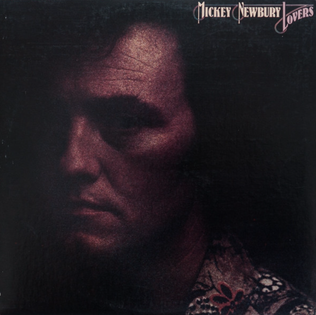
Lovers is the 1975 album by singer-songwriter Mickey Newbury. The album is noted for the inclusion of the epic trilogy "Apples Dipped In Candy" and the title track. It was his final release on Elektra Records. Chet Atkins played guitar on "Apples Dipped in Candy" and Bergen White arranged the strings on the album.
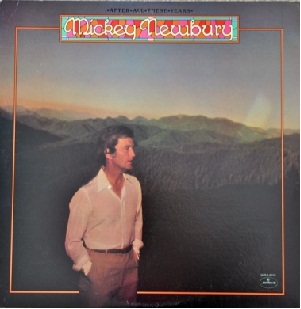
After All These Years is the 1981 album by singer-songwriter Mickey Newbury. Considered the concluding album of his remarkable 1970s run, it was the last album he would record for seven years. The album is very different in tone from its predecessor and revives Newbury's talent for song suites with "The Sailor/Song of Sorrow/Let's Say Goodbye One More Time". Other highlights on the album include "That Was The Way It Was Then" and "Over the Mountain".
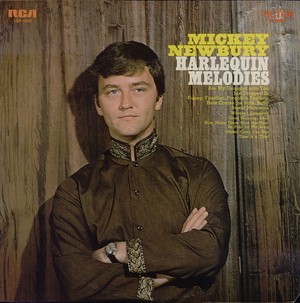
Harlequin Melodies is the 1968 debut album by singer-songwriter Mickey Newbury. Newbury was already a successful songwriter in Nashville, signed by Acuff-Rose Publishing. At one point he had four #1 hits on different charts for Eddy Arnold, Solomon Burke, The First Edition, and Andy Williams, and he had written hits for several others. Produced by Elvis Presley producer Felton Jarvis, Harlequin Melodies concentrates on Newbury's versions of his hit songs; nearly every song on the album has been covered by other artists.
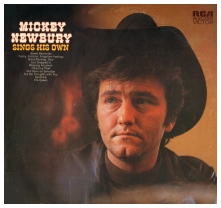
Sings His Own is the 1972 compilation album by singer-songwriter Mickey Newbury, a revised edition of his debut Harlequin Melodies, released by RCA Records in 1972, after the critical notice of Newbury's highly acclaimed Looks Like Rain and Frisco Mabel Joy. Newbury's RCA debut heavily featured songs that had been made into hits by other artists, and there is not much difference between that set and this one. Newbury largely disowned his RCA recordings, considering 1969's Looks Like Rain his true debut, and this album bears little stylistic similarity to anything else in his catalog.

An American Trilogy is a box set of three remastered albums by Mickey Newbury recorded between 1969 and 1973 at Cinderella Sound studio, in Madison, Tennessee, alongside an additional album of rare and unreleased recordings, entitled Better Days. It was released in 2011 on Saint Cecilia Knows, in association with the Newbury family and their label Mountain Retreat. The box includes the albums Looks Like Rain, Frisco Mabel Joy and Heaven Help The Child. All three albums have been remastered for the first time on CD from the original master tapes, long thought to have been destroyed in a fire.
















